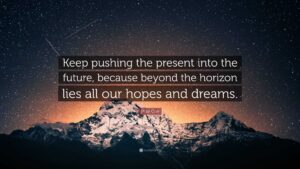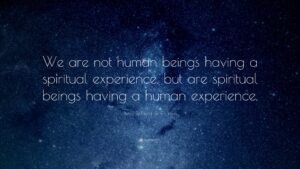
There is no shortage of intelligent, competent and insightful professional futurists. Amy Webb, for example, describes herself as the “quantitative futurist,” Micheal Rogers refers to himself as the “practical futurist,” and James Pethokoukis uses the moniker the “conservative futurist.” I am sure other futurists use similar descriptors to distinguish their work from that of their fellow peers.
Until recently, I have felt no need to differentiate myself in a similar way–although for more than a decade I have highlighted that the concept of “unlearning” was an important component of my work. If I were, however, forced to select a phrase by which I would have defined myself, I probably would have chosen: “The Humble Futurist.” This is because anyone who thinks about the future for his or her professional living must accept that uncertainty is simply a principle of the future. It cannot be ignored or willed away; and, in order to embrace uncertainty, it helps to have humility.
After much reflection (here and here), I do now consider myself to be “a spiritual futurist.” I want to make clear that I am not calling myself “The spiritual futurist.” I am sure many other futurists are spiritual in nature and I would never wish to assume otherwise. Also, I would never use the phrase because it might imply I am trying to position myself as some type of “guru”–which I am definitely NOT.
To be considered “a spiritual futurist” is, however, important to me. I have become convinced that if we are to appropriately discern the world of tomorrow we must first re-acknowledge that matters of spirituality–and not just artificial intelligence, quantum computing, gene editing, nuclear fusion, Blockchain, robotics, autonomous self-driving cars, 3D printers, renewable energy, regenerative agriculture, etc–are of the utmost importance. In fact, it is my opinion that spiritual matters will be the greatest driver of change in the future.
 Moreover, if we are to create a better future–a goal to which every futurist should aspire–we must embrace humanity’s spiritual nature. In short, we must acknowledge that we are spiritual beings. Pierre Teilhard de Chardin’s had it right when he said “We are not human beings having a spiritual experience, we are spiritual beings having a human experience.”
Moreover, if we are to create a better future–a goal to which every futurist should aspire–we must embrace humanity’s spiritual nature. In short, we must acknowledge that we are spiritual beings. Pierre Teilhard de Chardin’s had it right when he said “We are not human beings having a spiritual experience, we are spiritual beings having a human experience.”
I am slowing down in my work as a professional futurist so that I may focus more time on my own spiritual development but for the select few clients for whom I do choose to work–primarily in the fields of farming and agribusiness–I feel it is important they understand I view them as spiritual beings who are engaged in the sacred work of creating a better world.
I understand this “spiritual” perspective may not be welcomed in many businesses, corporations, boardrooms but it is how I understand both the world and the future.
